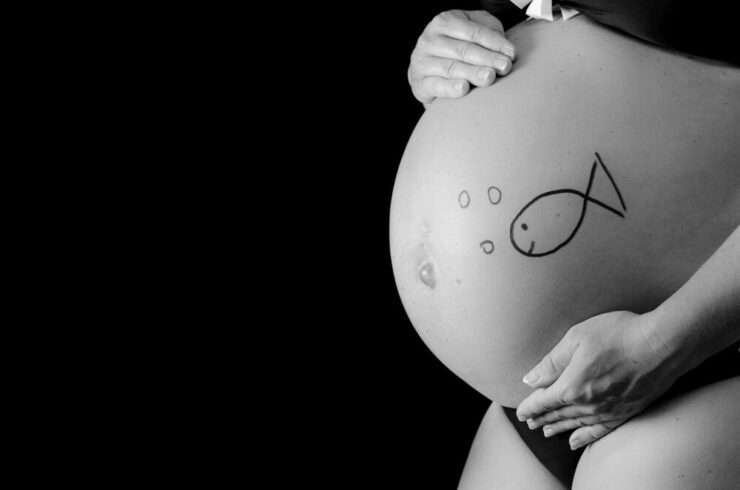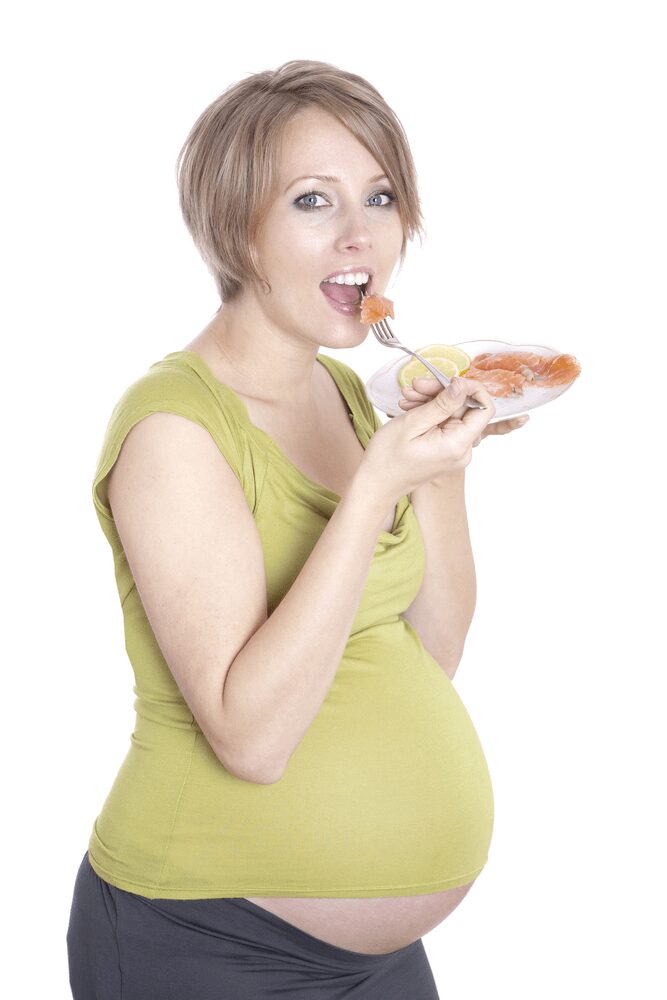The nine months of pregnancy are very critical for the mother and the child because during those nine months the mother’s body is not only looking after itself but also nourishing a baby which makes it quite vulnerable to damages and diseases.
During pregnancy, a woman should follow a specific diet plan prepared by a professional dietitian based on her conditions. The experience of pregnancy is different for each woman which is why the diet plan also varies from mother to mother.
We have all heard myths about eating fish during pregnancy first trimester. Mothers are quite mindful of all the things that they hear. Even though they don’t believe them, they want to be sure of them before they start consuming those food items.
So just like other food items, there is a myth about fish that eating fish during pregnancy first trimester is actually bad for the baby and the mother. According to the old women in the family, it somehow affects the growth and the development of the baby.
So today in this article we are going to discuss whether eating fish during pregnancy first trimester is good for the mom and the baby or not so continue reading to find out all about the relation between fish and pregnancy because we are going to discuss it all.
Table of Contents
Why pregnant women should add fish to their diet?
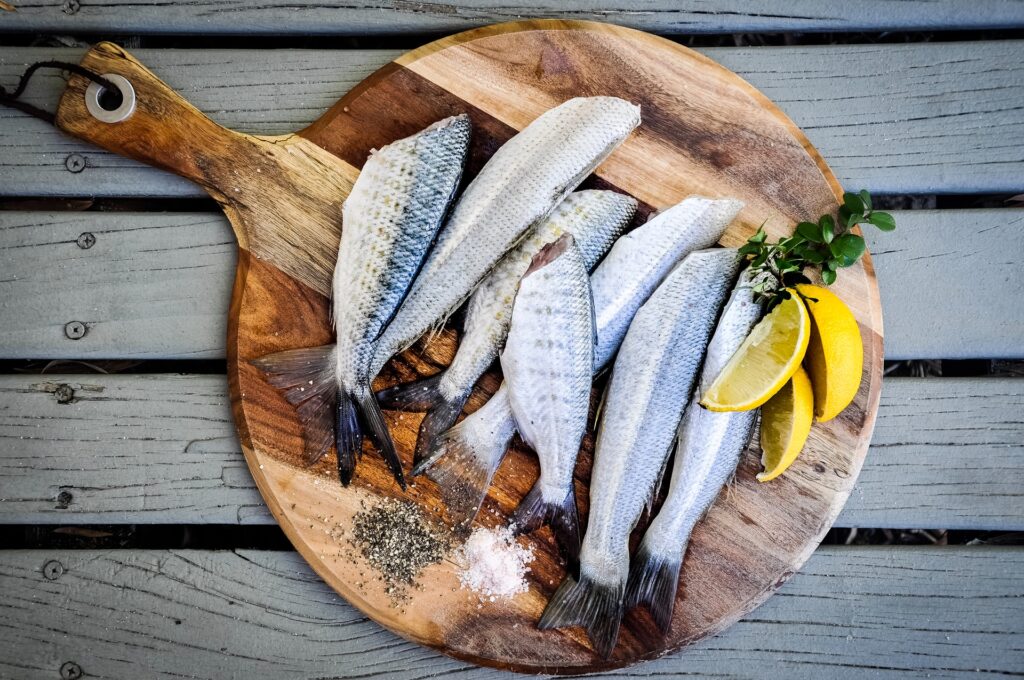
Most pregnant women are confused about the fact of whether they should consume fish during pregnancy or not? Well, the answer to that question is that there are various kinds of fish that you can find in the market but not all of them are good for pregnancy and neither are all of them bad for pregnancy.
So we can say that fish overall is good for pregnant women because fish contains EPA and DHA that are two essential Omega 3 fatty acids that are only found in fish and are actually good for the development of the baby. Thus doctors recommend mothers to eat fish during the first trimester of pregnancy in order to ensure proper growth and development of the baby.
Along with the Omega 3 Fatty Acids, fish also contains an immense number of essential nutrients such as proteins and Vitamin D that strengthen the bones of the baby and ensures proper development. On the other hand, fishes also have low saturated fat which makes it perfect for consumption.
The impact of Mercury in the Fish on the development of the baby

You must have heard about the mercury that is present in the fish. But the problem is that most moms do not know what mercury is and how it affects the health and the development of the baby so let us look at the relation between fish and mercury and why it is harmful to the baby.
1. What is mercury?
Mercury is a powerful element that is present all around us, in the air that we breathe, in the water that we drink, and in the food items that we consume. For clarification, mercury is a silver metal that is quite harmful to humans. It not only affects the body but also has drastic effects on the neurological system of the human body.
2. Where does it come from?
Mercury in fish comes from the water that they live in. Mercury is a common metal that is present in the industries so when the industries release their waste into the rivers and the lakes, the fishes that live their get affected by it.
The problem with mercury is that unlike other toxins you cannot remove it from food items by boiling them or freezing them because mercury binds with the muscles of the fish which is why it is impossible to remove it before the preparation the fish for a meal.
The best way to reduce the risk of consuming too much mercury is to consume fish that have low mercury content. You can get these from the supermarket or you can catch them yourself from the waters that are
not polluted by mercury or any kind of industrial waste.
3. Risks associated with mercury consumption
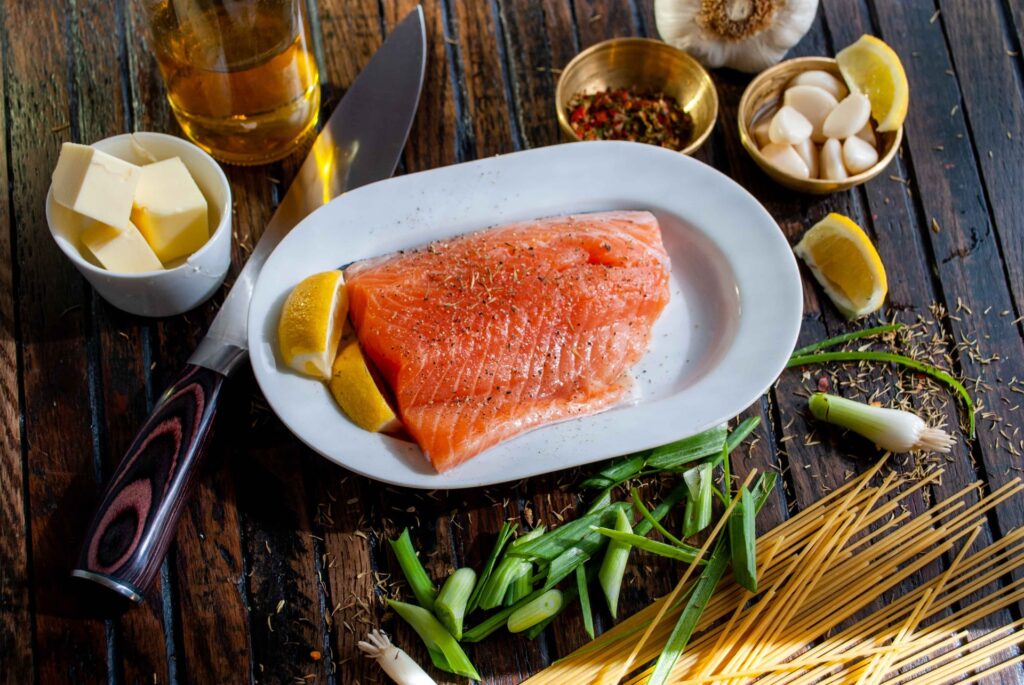
The risk associated with the consumption of mercury is that it is a powerful mental and metals do not react well in our body thus they are harmful to the baby and the mother. Mercury affects the proper development and growth of the baby.
The metal is most dangerous because it impacts the baby’s brain development. Thus consuming too much fish with high mercury content during pregnancy can affect the vision, language, motor skills, and cognitive skills of the developing baby in the first trimester. Plus it can also impact the memory of the baby.
This doesn’t mean that you should consume fish at all. The core thing to focus on here is that you should only consume the fish that contain low mercury content so that the mercury doesn’t harm your baby and you get the essential nutrients like Omega 3 Fatty acids as well at the same time.
How much fish should pregnant women eat?
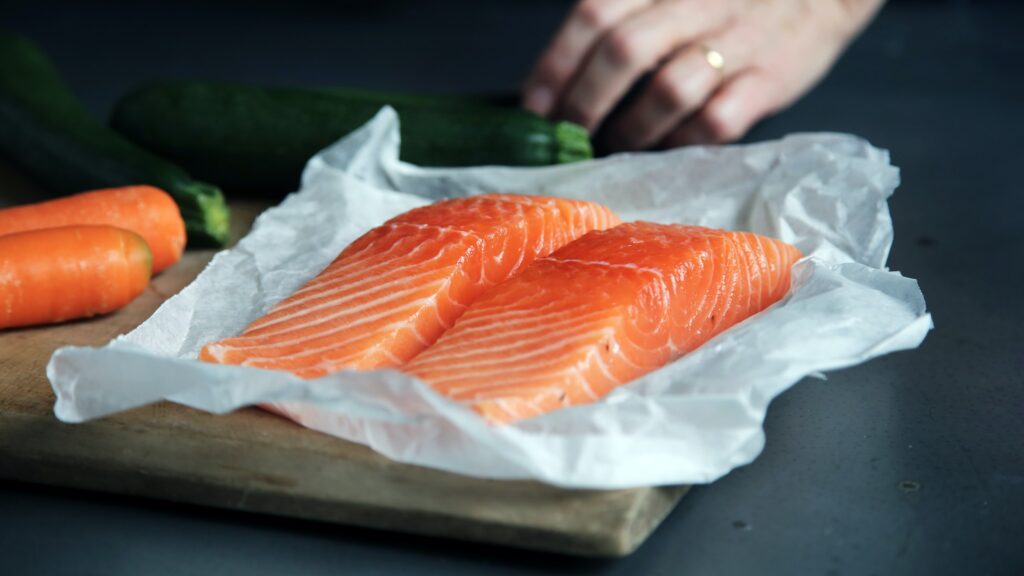
Now that we know that fish is actually good for the health and the development of the baby the next question is how much fish should a pregnant woman consume to ensure that she doesn’t take it too much of the toxin mercury into her bloodstream.
According to International agencies like the FDA (Food and Drug Administration) and EPA (Environmental Protection Agency), pregnant mothers should consume only 8 to 12 ounces of fish every week during pregnancy. This means that you as a mother should only eat two to three servings of low mercury fish every week for best results.
Benefits of eating fish during pregnancy
When we talk about consuming fish during pregnancy we are talking about the number of benefits that you can get for consuming it. The nutrients in the fish don’t only help you but also ensure proper development and growth in your baby so let us look at some of the amazing benefits of fish.
- Fish contains lean protein which is broken down into amino acids that are essential for the fetal growth. It is essential for the development of the baby’s hair cells, bones, skin, and muscles.
- Fishes are a great source of DHA that boost the growth of the baby’s brain and accelerates the overall growth rate of the baby.
- Omega 3 Fatty acids that are found in fishes are good for enhancing the memory of the baby and ensure development in the baby.
- Omega 3 Fatty acids like DHA help the women fight the mood swings and the depression that they suffer from during pregnancy and after pregnancy.
- Eating fish can also help mothers lower their blood pressure during pregnancy. Plus the mineral found in fish also reduces blood clotting and the fat level in the blood which reduces the risk of cardiac arrest.
Fish you should eat and fish you should avoid
There are so many types of fishes that you can find in the market so the question is which fishes are good and healthy and which ones are bad for your health during pregnancy. Well, the one thing that is clear from the above discussion is that fishes with low mercury content are healthy while the ones with high mercury levels should be avoided.
According to experts, it is safe for pregnant moms to consume 2-3 servings of salmon, shrimp, catfish, crab, cod, lobster, clams, and trout per week. Whereas when it comes to Halibut, shrimp, and snapper then mothers should only consume a single serving per week.
Apart from the types of fishes that one can consume, it is also recommended that you get fresh and originally farmed fish and you should avoid fishes that have a high level of mercury in them such as sharks, king mackerel, swordfish, and tilefish. You should also avoid the canned tuna because it contains a high amount of mercury in it. the best practice is to consult your doctor before adding anything to your diet.
Also, try to prepare the fish properly, it is recommended that you clean the fish yourself and then heat it at 75 degrees Celsius in order to remove all the possible toxins, bacteria, and other contaminants from it. Plus use different boards for cleaning and cutting of the fish for hygienic purposes.
Conclusion
Fish is an essential food item that you must add to your diet plan during the first trimester of your pregnancy but it is always better to consume recommended portions and quantities of fish. So always consult your doctor before adding it to your diet and try to get your hands in healthy fish that contain the least amount of mercury in it.
Hope you stay safe and good luck with your pregnancy.

